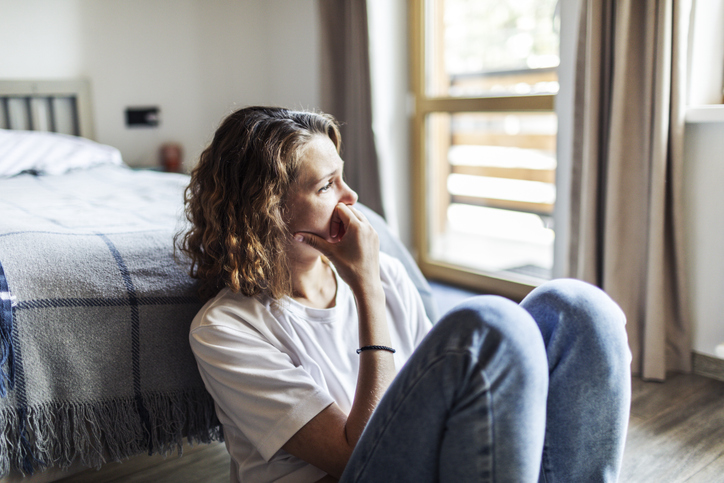Antidepressant medicines are used to treat depression, anxiety and other mental health conditions. They’re powerful (sometimes even lifesaving) tools, but they can also make you more sensitive to heat.
Mild heat sensitivity usually isn’t dangerous. Maybe you get a little tired or dizzy more quickly in the heat. Maybe you feel flushed, extra sweaty or just “off” when it’s hot outside. But in more extreme cases, it can lead to heat exhaustion or heat stroke, which are medical emergencies.
Why do antidepressants cause heat sensitivity?
Different types of antidepressants can mess with your body’s ability to stay cool in different ways, including:
- Your ability to sweat: Tricyclic antidepressants like Amitriptyline (Elavil) or Nortriptyline (Pamelor) can decrease sweating due to their chemical effect. “This is a problem because sweat is your body’s natural air conditioning system,” explains Tracey W. Criss, MD, Carilion Mental Health. No sweat = no way to cool down.
- Your internal thermostat: SSRIs like fluoxetine (Prozac) or sertraline (Zoloft) and SNRIs like venlafaxine (Effexor) or duloxetine (Cymbalta) work by adjusting serotonin levels in your brain. But serotonin doesn’t just affect mood—it also plays a role in regulating body temperature.
That means your internal thermostat might be off, making it harder to cool down or causing you to feel too hot even when others seem fine. This can also cause increased sweating, leading to dehydration.
Who’s most at risk?
Anyone on antidepressants can have heat sensitivity, but you’re more at risk if you:
- Are over 65 (aging makes heat regulation harder)
- Have a chronic illness (like heart disease or diabetes)
- Take more than one medication that can cause heat sensitivity
- Live somewhere hot or humid
- Do a lot of outdoor activities or work outside
Tips for managing heat sensitivity
Good news: you don’t have to choose between your mental health and staying safe in the heat. Here are a few things that can help keep you comfortable:
- Drink water regularly, even if you don’t feel thirsty
- Avoid direct sun when you can—try to stay in the shade or indoors during peak heat hours (10 a.m. – 4 p.m.)
- Wear loose, light-colored clothing that lets your body breathe
- Take breaks, especially if you’re exercising or working
- Use fans or cooling towels
“It’s very important that you do not stop taking your medicine before discussing it with your doctor,” says Dr. Criss. “If you’re feeling ill in the heat, you may need an adjustment in your medications.”
Signs it’s more serious
Heat exhaustion and heat stroke can sneak up on you, especially if you’re on medicine that makes you more sensitive to heat. Get medical help right away if you or someone else has:
- A high body temperature
- Confusion or strange behavior
- Hot, dry skin (no sweat)
- Rapid pulse
- Nausea or vomiting
- Fainting
These could be signs of heat stroke, a life-threatening condition.
If you’re experiencing heat sensitivity while taking an antidepressant, do not stop taking your medication. Reach out to your doctor to discuss your treatment options.

